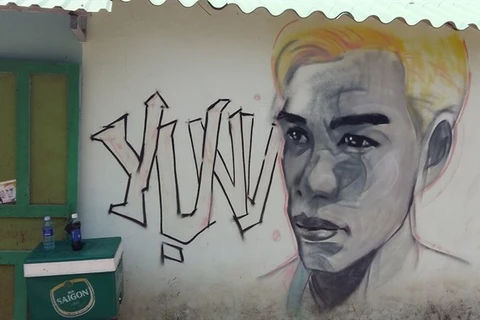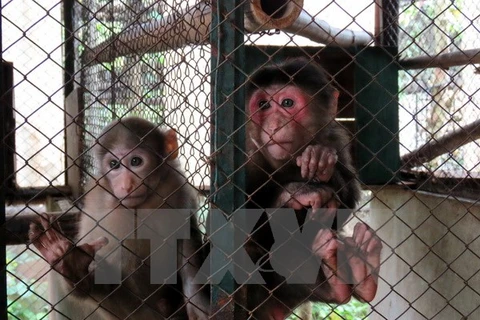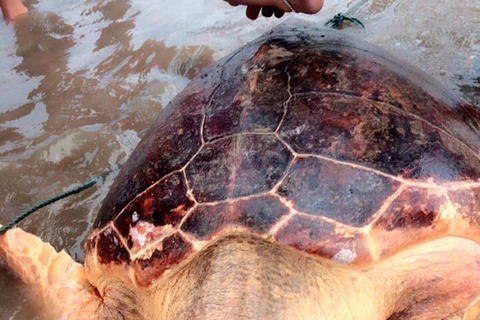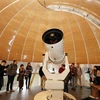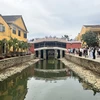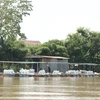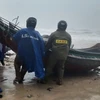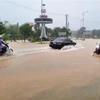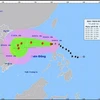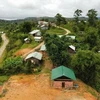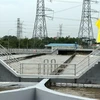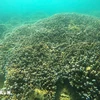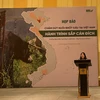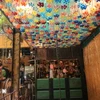
Concrete dykes and rapid urbanisation in Ly Son Island prevent the return of sea turtles for egg laying on warm and quiet beaches. (Photo: VNA)
Quang Ngai (VNA) - The International Union for Conservation of Nature (IUCN) plans to launch a communication campaign to promote the non-use of plastic bags as a prelude to its sea turtle conservation programme on Ly Son Island in 2018.
IUCN’s Marine and Coastal resource programme co-ordinator Bui Thi Thu Hien told Vietnam News that the communication campaign aims to raise awareness among islanders and tourists of the need to create clean and safe marine areas for sea turtles returning to the island in the near future.
Hien said on December 26 other activities related to marine environment cleaning and protection would be launched beginning next year to boost sea turtle conservation in the area where turtles had laid their eggs in the past decades.
According to IUCN’s research, the sea turtle population in central coastal areas has seriously declined in recent years.
Quang Ngai beaches, including areas in Binh Son district on Ly Son Island, witnessed 200 sea turtles regularly approaching the beaches to lay their eggs in 1980s.
However, the figure dropped by 90 percent between 1980 and 2000 due to rapid urbanisation, over-fishing and the construction of buildings and concrete dykes.
According to IUCN Vietnam, only eight out of 16 Marine Protected Areas (MPAs) in Vietnam offer sea turtle conservation.
Hien said MPA in Ly Son Island still struggles with a lack of investment and human resources for sea turtle conservation.
Beaches in Quang Ngai were home to species including green turtles (Chelonia mydas), hawkbills (Eretmochelis imbricate) and leatherbacks (Dermochelys coriacea).
According to Le Xuan Ai, a sea turtle conservationist, beaches in Quang Ngai, Quang Nam, Binh Dinh, Phu Yen and Binh Thuan provinces were favourite sites for sea turtles to lay their eggs.
Ai succeeded last year in releasing nearly 900 baby turtles into the sea in a pilot programme for ex-situ sea turtle conservation in the Cham Islands, off the coast of Quang Nam province.
Sea turtle eggs, which had been laid 40 days earlier on Con Dao Island, were brought to hatch in sand nests on the Cham Islands’ beaches before the baby sea turtles made their way into the sea.
Last year, IUCN, in cooperation with the US Fish and Wildlife Service, started a marine environment protection communications programme for sea turtle conservation on An Binh Islet, three miles off Ly Son Island.
Paintings of ocean life and species were created on the walls of households in An Binh Islet, calling on local islanders and tourists to join hands to protect the marine environment and sea turtles. - VNA
VNA
